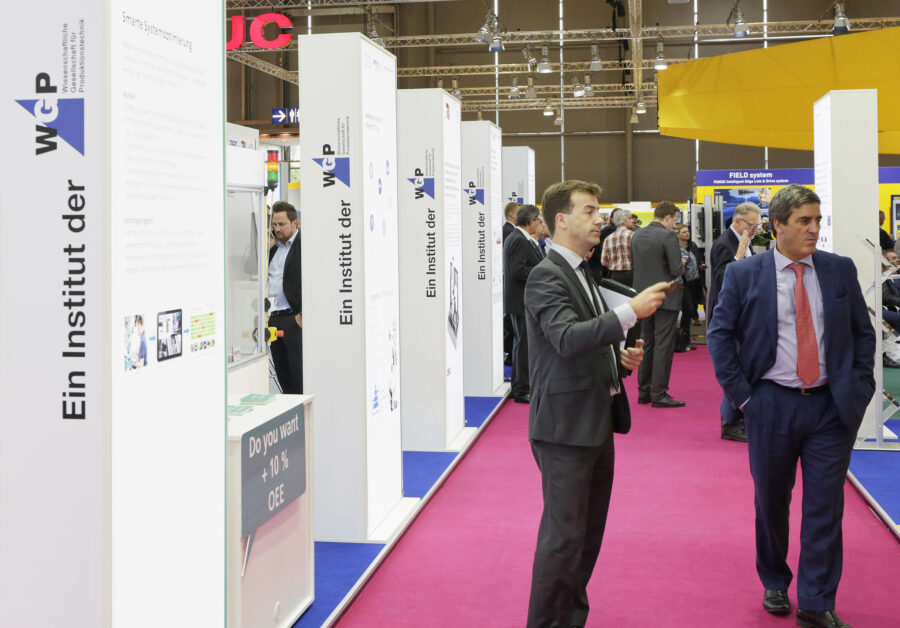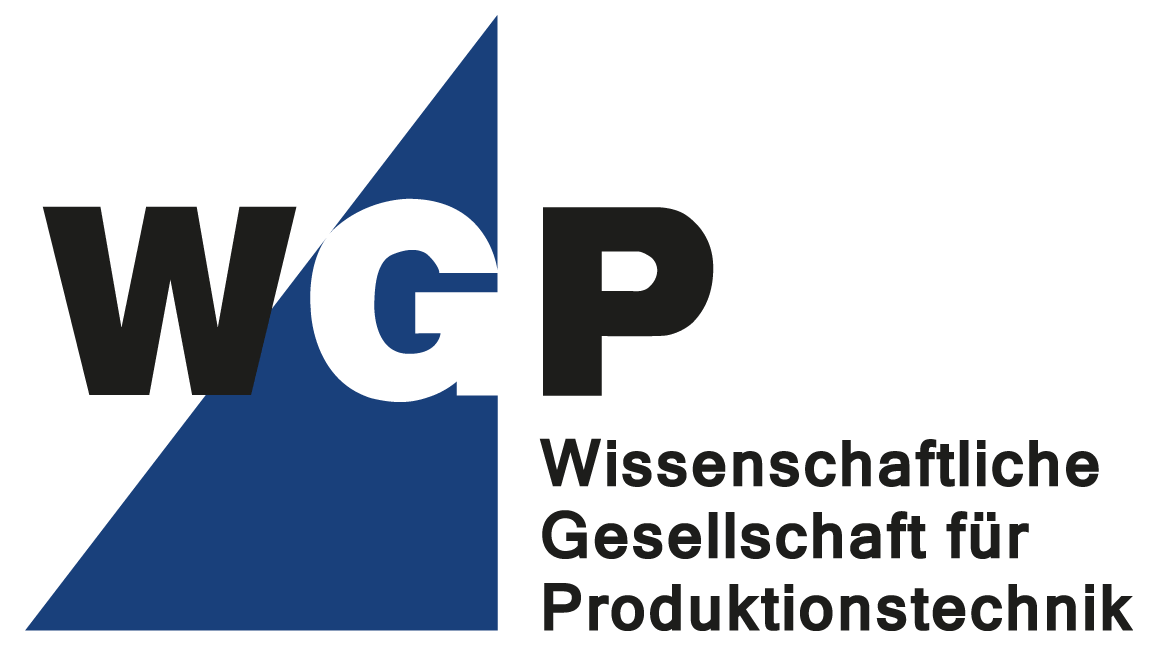
Hamburg, September 11, 2023 – Production will be more resilient, sustainable and efficient in the future. WGP (Scientific Society for Production Technology) will be demonstrating how this can be done at EMO Hannover, the world’s leading trade fair for production technology, from September 18 to 23, 2023. “Having already contributed to the Let’s Talk Science online format in the run-up to the show, we are now looking forward to presenting some of our pioneering projects for tomorrow’s industry to a global audience,” says Prof. Jens P. Wulfsberg, President of WGP. “We are opening a window to the future of manufacturing in Hannover.”
The association of leading German professors of production engineering is represented as a WGP joint booth at the Future of Sustainability in Production Area (Hall 16, F11). “The appearance at this special booth makes sense because WGP has been working on more efficient, more sustainable production technology for many years,” Wulfsberg emphasizes. “One concrete project that has emerged from this and about which we are providing information at EMO is our WGP Efficiency Initiative. We launched it on the occasion of the energy crisis following the Russian war of aggression on Ukraine. We have numerous solutions that help industry to save energy, sometimes drastically – even energy-intensive industry has great potential. And some of the savings measures can be implemented in the short term and without major financial outlay. However, the measures need to become more widely known – and people need to want to implement them.”
Independent of the efficiency initiative, the WGP institutes show their own research results. The Institute of Production Engineering (wbk) at the Karlsruhe Institute of Technology (KIT), for example, has been working for years on electric traction motors for hybrid and fully electric vehicles. For example, they are developing a modular construction kit with which different types of traction motors can be manufactured and assembled more flexibly and thus more economically. At EMO Hannover, the researchers are now presenting a demonstrator for autonomous adaptive disassembly of these motors. “The demand for electric motors will increase sharply in the future. We therefore need to develop innovative end-of-life solutions for these motors today in order to minimize both the need for new resources and the energy input and CO2 emissions in the production of new motors,” warns Prof. Jürgen Fleischer, head of the Machinery, Plant and Process Automation Institute at wbk Karlsruhe. “Critical materials such as copper or permanent magnets can be recycled in this way.” In Hanover, the researchers will demonstrate simulation-based planning through to physical disassembly using robots based on a simplified engine model. “However, we will also show how deviations between simulation and reality, for example due to process failures, can be detected in the future to make autonomous adaptation of the disassembly plan possible,” Fleischer said.
Artificial intelligence makes its way into production
WGP is also represented at the Future of Connectivity Area special booth (Hall 9, H22). Here, the Institute of Production Engineering and Machine Tools (IFW) of Leibniz Universität Hannover is showing its self-learning machine tool. With the help of artificial intelligence (AI), the machine’s digital twin can predict shape deviations even before the manufacturing process and react adaptively to them. In addition, AI-supported process monitoring helps to detect and avert unforeseeable process errors in real time.
However, the researchers from Hanover will also be presenting their Mittelstand Digital Center. There, best-practice examples on AI will be presented and companies can inquire about custom-fit solutions for the area of production technology.
The North German scientists will also be presenting practical solutions as part of the IIP-Ecosphere joint project. These are the results of more than three years of research in the field of intelligent production. The focus is on the proprietary IIoT platform, which supports the development and execution of service-based AI applications in industrial production. A total of four demonstrators will be on site. A highlight will be the final symposium on September 19, 2023, where collaborators will present their project results and findings and highlight future application opportunities.
“EMO is an ideal platform for us to identify cooperation opportunities with industrial partners, other research institutions and potential research partners,” enthuses Prof. Berend Denkena, President of WGP from 2018/19 and Head of IFW Hannover. “Our aspiration is not only to act as a source of impetus for companies, but also to obtain valuable impetus from practice that serves as a basis for new research approaches. Our goal is to drive the transfer of knowledge from research to industry and to shape the future of production technology together with companies.”
The ProKI network also acts entirely in this spirit. It is coordinated by the Laboratory for Machine Tools and Production Engineering (WZL) at RWTH Aachen University and includes eight locations. Pro-KI-Hannover will be demonstrating automated quality inspection using artificial intelligence at the trade fair. Using ground surfaces as an example, visitors will learn how scratches or irregular grinding patterns can be detected automatically.
So anyone who wants to make their company fit for the future should stop by the WGP. Appointments can be made in advance.
Book a visit:
Autonomous adaptive disassembly of traction motors
E-mail: malte.hansjosten@kit.edu
Digital twin
https://www.ifw.uni-hannover.de/de/institut/emo-hannover-2023
Medium-Sized Digital Center Hanover
https://digitalzentrum-hannover.de/aktuelles/emo2023/
ProKI Network
https://emo-hannover.de/kontakt/
Further information:
Let’s Talk Science
https://emo-hannover.de/lets-talk-science
Download:
Image 1: WGP at EMO Hannover 2019, Source: Mark Winkel-Blackmore, Deutsche Messe AG.
Image 2: Prof. Jens P. Wulfsberg, president of WGP, head of the Manufacturing Technology Laboratory (LaFT), Helmut Schmidt University, Hamburg, Germany Source: LaFT Hamburg, Germany
Image 3: Prof. Berend Denkena, former president of WGP, head of the Institute of Manufacturing Technology and Machine Tools (IFW), Leibniz University Hannover, source: IFW Hannover
Image 4: Prof. Jürgen Fleischer, Head of the Institute for Machines, Plants and Process Automation of the Institute for Production Technology (wbk), Karlsruhe Institute of Technology (KIT), Source: wbk KIT
